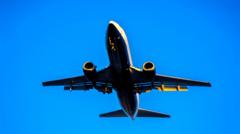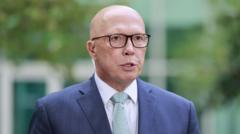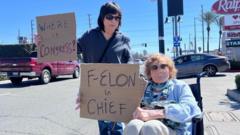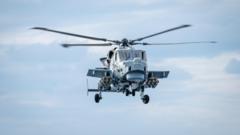The strike left Boeing reeling, but workers can now return to their posts following the ratification of a new contract.
Boeing Workers Ratify 38% Pay Increase, Ending Seven-Week Strike

Boeing Workers Ratify 38% Pay Increase, Ending Seven-Week Strike
Boeing employees approve a significant pay rise, marking the conclusion of a protracted workforce walkout.
Boeing workers returned to the assembly lines as they ratified a new contract that features a staggering 38% pay rise over the next four years. This decision comes after a tumultuous seven-week strike that had begun on September 13, involving around 30,000 employees and resulting in substantial slowdowns at the company's factories. The International Association of Machinists and Aerospace Workers (IAM) announced that 59% of striking members voted in favor of the agreement.
In addition to the generous pay increase, the new deal offers a one-time bonus of $12,000 and adjustments to retirement plans, reflecting the union's efforts to secure better compensation during tumultuous economic times. "Through this victory and the strike that made it possible, IAM members have taken a stand for respect and fair wages in the workplace," stated Jon Holden, the union leader.
Boeing's CEO, Kelly Ortberg, acknowledged the challenges faced by the company, emphasizing the need for teamwork moving forward. "There is much work ahead to return to the excellence that made Boeing an iconic company," he remarked. The importance of the strike was underscored by the involvement of the White House, with acting US Labor Secretary Julie Su traveling to Seattle to facilitate negotiations.
Boeing has been grappling with financial instability, with the strike estimated to have cost the firm nearly $10 billion. The commercial aircraft division reported a staggering $4 billion in losses for the third quarter ending in September. In an effort to stabilize its finances, the company initiated a share sale aiming to raise over $20 billion, following alerts that an extended strike might worsen their credit rating.
As part of the ongoing restructuring, Boeing announced plans to lay off around 17,000 workers, with an initial wave of redundancy notices expected by mid-November. The current crisis for Boeing began earlier this year with a significant incident involving one of its passenger planes, further compounded by setbacks in the space sector with its Starliner vehicle.
While the strike has ended, Boeing faces critical challenges ahead, both economically and reputationally, as it strives to regain its standing in the aviation industry.
In addition to the generous pay increase, the new deal offers a one-time bonus of $12,000 and adjustments to retirement plans, reflecting the union's efforts to secure better compensation during tumultuous economic times. "Through this victory and the strike that made it possible, IAM members have taken a stand for respect and fair wages in the workplace," stated Jon Holden, the union leader.
Boeing's CEO, Kelly Ortberg, acknowledged the challenges faced by the company, emphasizing the need for teamwork moving forward. "There is much work ahead to return to the excellence that made Boeing an iconic company," he remarked. The importance of the strike was underscored by the involvement of the White House, with acting US Labor Secretary Julie Su traveling to Seattle to facilitate negotiations.
Boeing has been grappling with financial instability, with the strike estimated to have cost the firm nearly $10 billion. The commercial aircraft division reported a staggering $4 billion in losses for the third quarter ending in September. In an effort to stabilize its finances, the company initiated a share sale aiming to raise over $20 billion, following alerts that an extended strike might worsen their credit rating.
As part of the ongoing restructuring, Boeing announced plans to lay off around 17,000 workers, with an initial wave of redundancy notices expected by mid-November. The current crisis for Boeing began earlier this year with a significant incident involving one of its passenger planes, further compounded by setbacks in the space sector with its Starliner vehicle.
While the strike has ended, Boeing faces critical challenges ahead, both economically and reputationally, as it strives to regain its standing in the aviation industry.























